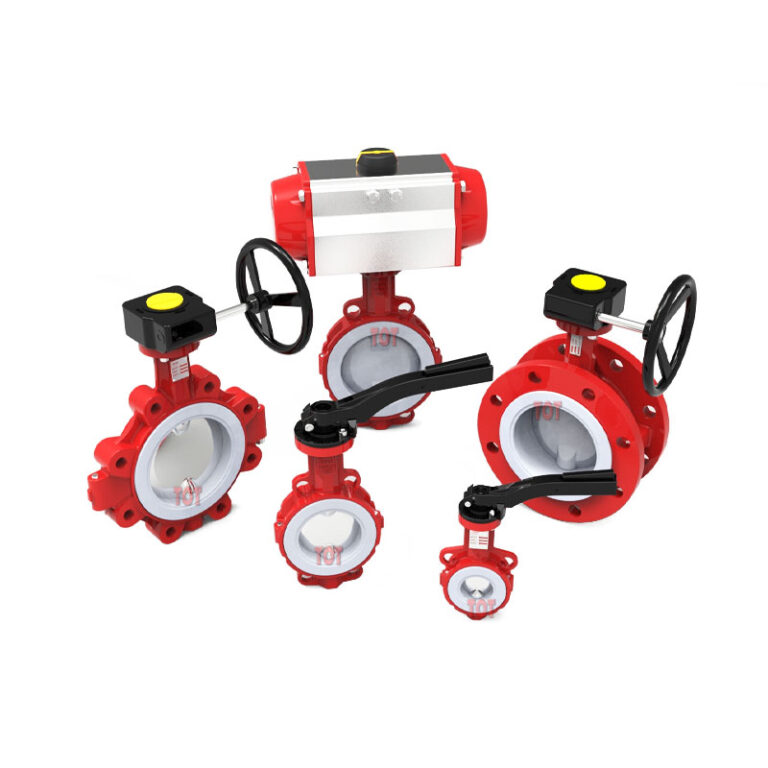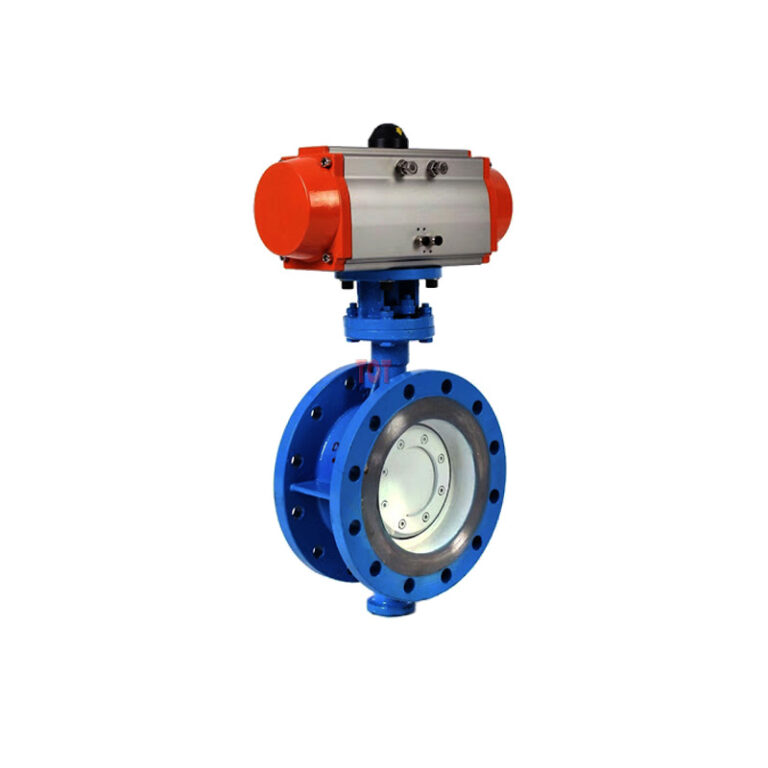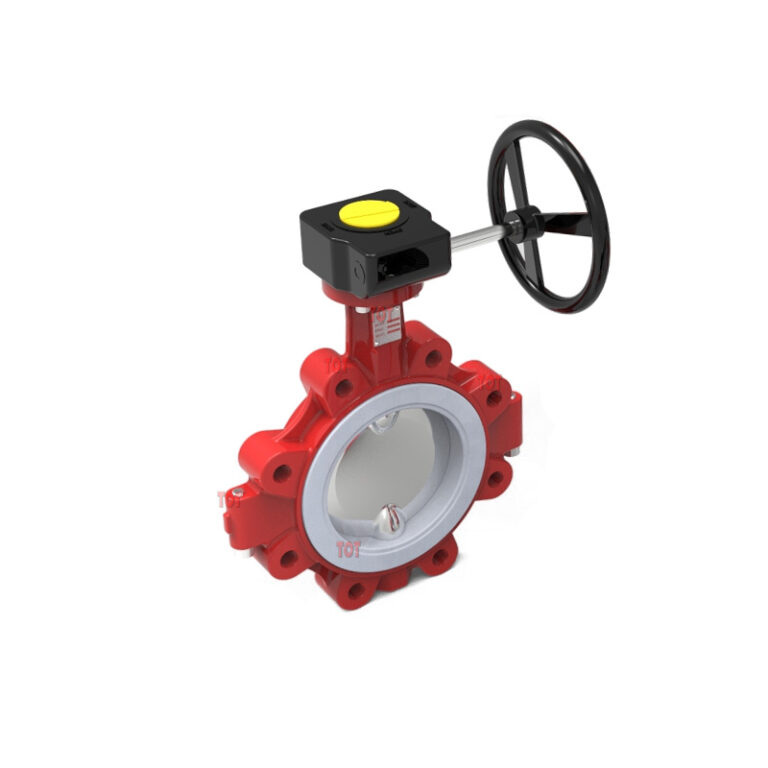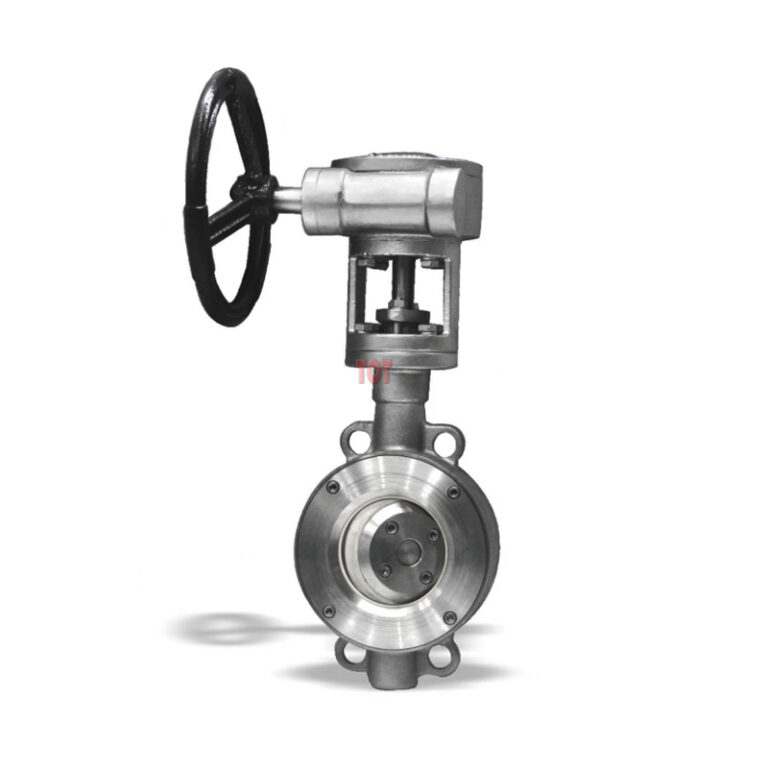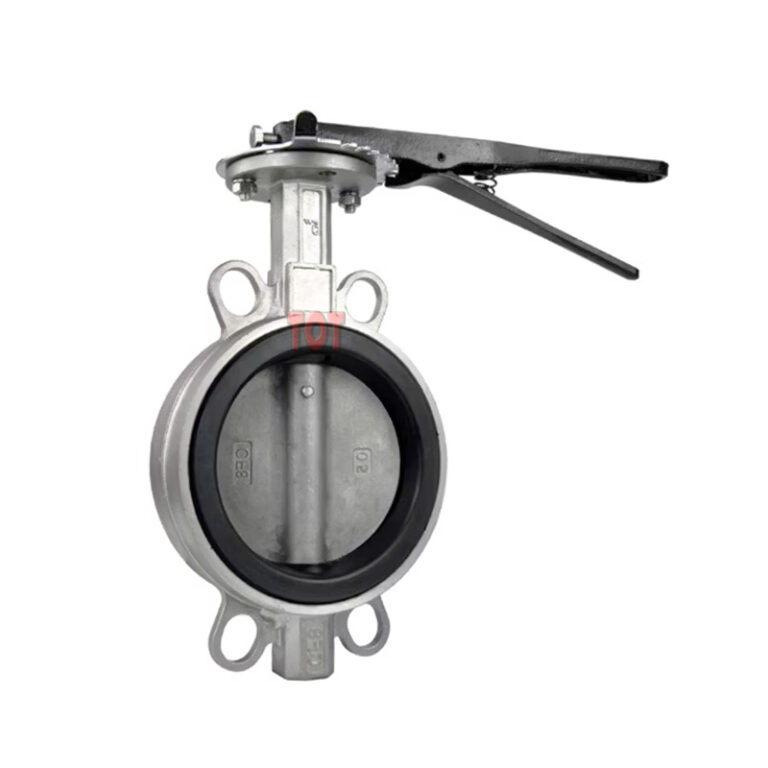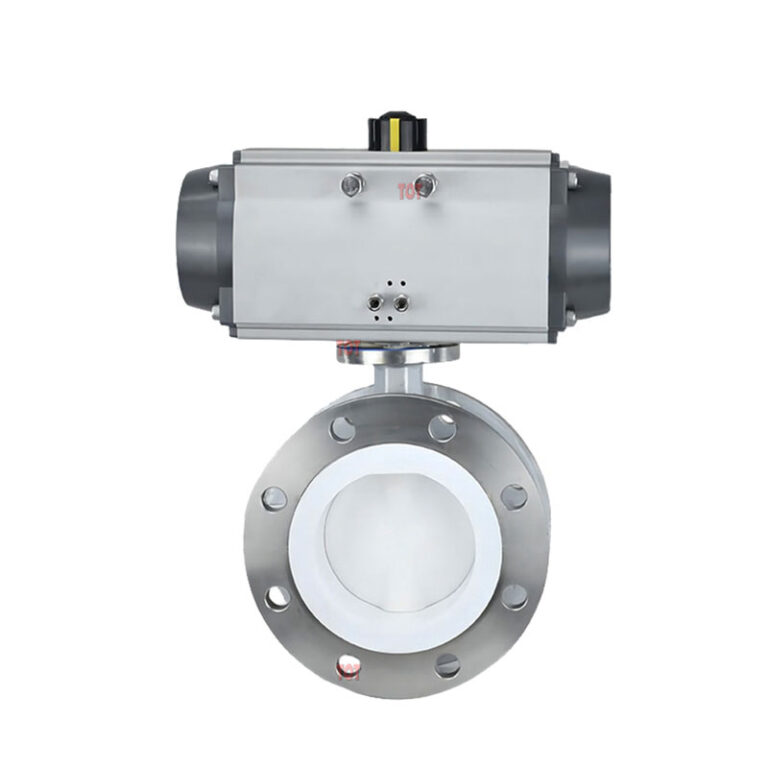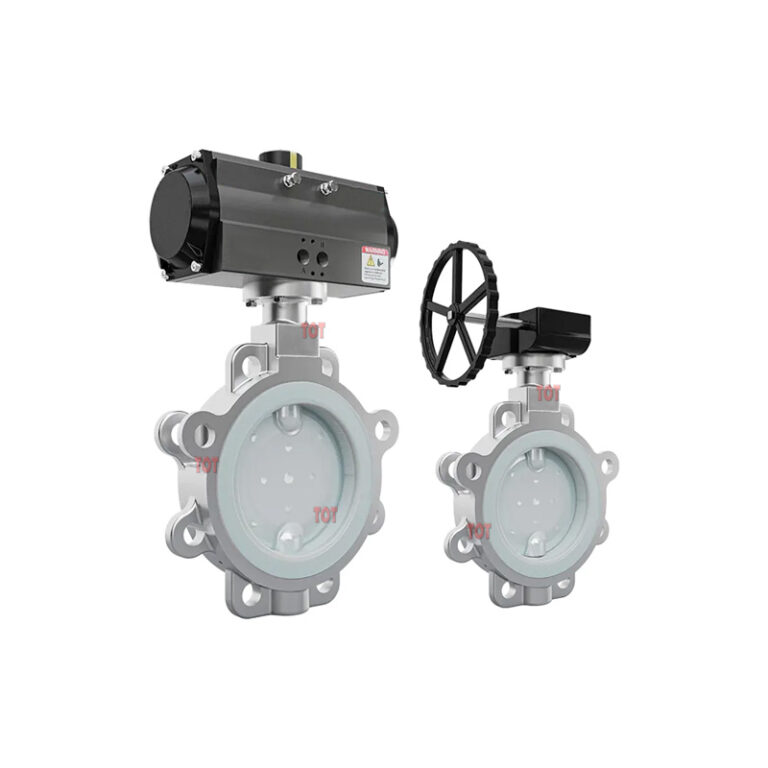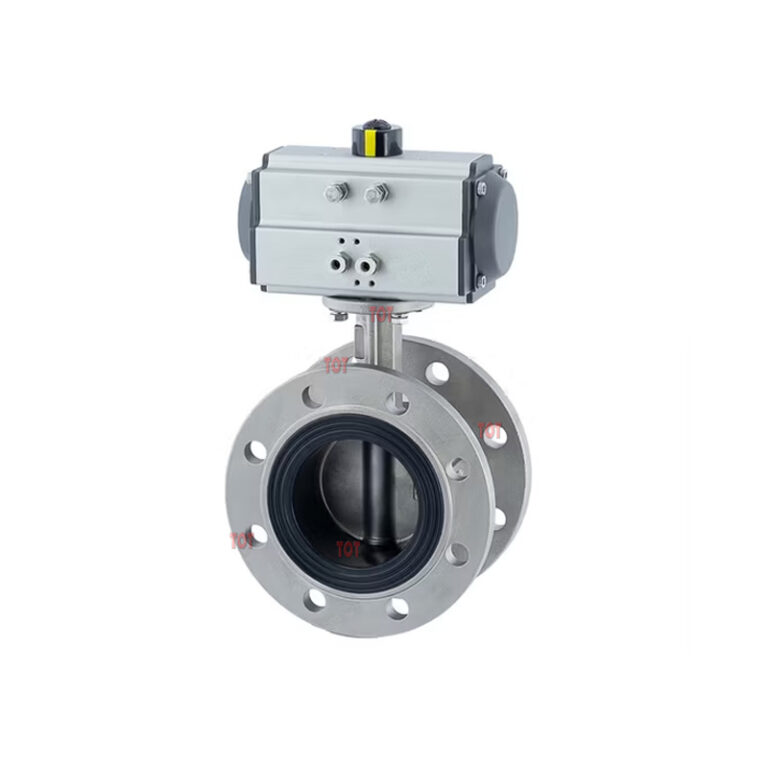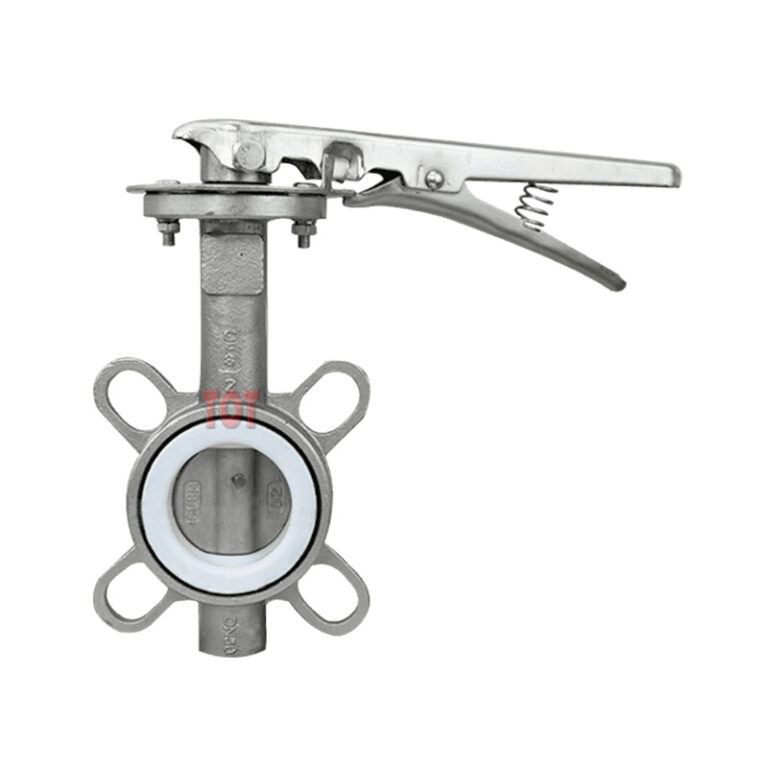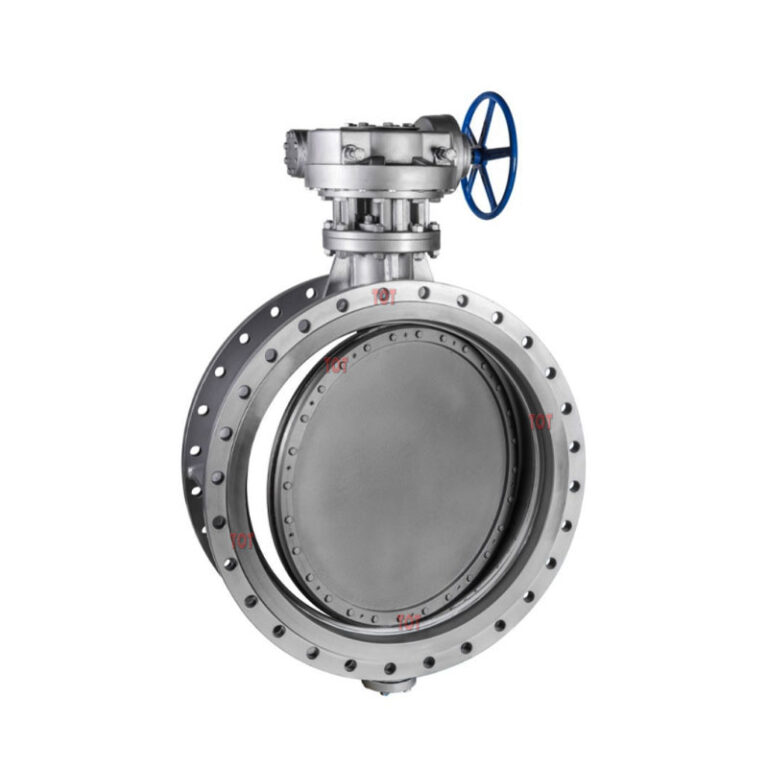Reliable | Efficient | Engineered for Performance
Butterfly Valve Manufacturers & Supplier
Let’s first look at what a butterfly valve is? A butterfly valve is a quarter-turn rotational motion valve used to stop, regulate, or start fluid flow. It consists of a circular disc mounted on a rotating shaft. When fully closed, the disc blocks the passage of fluid; when open, it allows flow with minimal resistance. This simple, compact design makes butterfly valves ideal for applications requiring fast operation, space efficiency, and low-pressure drop.
When reliability, durability, and performance matter — TOT Valve delivers. As a leading butterfly valve manufacturer and supplier of industrial butterfly valves, we help you streamline fluid control across demanding applications with confidence.
Whether you’re operating in oil & gas, chemical processing, wastewater treatment, or slurry transport, our expertly engineered butterfly valves offer efficient shut-off, throttling, and flow regulation — without compromise.
Be careful when choosing a new valve supplier, the disappointment of poor quality can last much longer than the joy of a low price!
Advantage of Butterfly Valves
At TOT Valve, we specialize in manufacturing industrial grade butterfly valves tailored for demanding applications. Our valves are engineered to deliver tight shut-off, minimal pressure drop, and long-term reliability—even in corrosive, high-temperature, or high-pressure environments.
Fast Quarter-Turn Operation
Open or close flow instantly with a simple 90° turn—perfect for quick shut-off and emergency control.
Compact and Lightweight
Easier to install and maintain compared to bulky alternatives like gate or ball valves.
Wide Range of Materials
From ductile iron to stainless steel valve body, and PTFE to ceramics to metal seats—we offer material combinations optimized for your fluid type and system pressure.
Versatile Applications
Suitable for water, wastewater, steam, gas, oil, slurries, and chemical processing.
Certifications
Our butterfly valves meet:
- API 6D
- ISO 9001
- CE/PED
OEM & Customization Support
Need a special trim, actuator, or flange dimension? Our engineers are ready to co-develop solutions that fit your application, branding, and installation constraints.
Explore Our Butterfly Valve Types
We offer a full line of butterfly valves to match your system specifications and project requirements.
By Body Type

Wafer Butterfly Valve
Cost-effective and compact; ideal for tight spaces. Sandwiched between flanges.

Lug Butterfly Valve
Allows dead-end service and easy disassembly from either side.

Flanged Butterfly Valve
High-strength connection, perfect for high-pressure environments.
By Disc Closure Design

Concentric Butterfly Valve
Centered disc for low-pressure, general-purpose use.

Double Offset (Eccentric) Butterfly Valve
Reduces seat wear, extending service life.

Triple Offset Butterfly Valve
Metal-to-metal sealing, bubble-tight shut-off for high-pressure, high-temperature applications.
By Actuation Method

Manual Butterfly Valve

Electric Butterfly Valve

Pneumatic Butterfly Valve

Hydraulic Butterfly Valve
Butterfly Valve Key Components & Materials
Body and Disc
- Cast Iron / Ductile Iron: High strength and affordability;
- Stainless Steel: For sanitary or corrosive environments
Seat
- EPDM: Suitable for water, air, and non-aggressive media
- PTFE: Chemically resistant for aggressive fluids
- Metal: For fire-safe, high-temperature applications
- Ceramics:High corrosion resistance and wear resistance, especially suitable for liquids containing solid particles and slurries.
| Name | Material | Name | Material |
|---|---|---|---|
| Valve Body | WCB/Stainless Steel | Filler | 304+ Flexible Graphite |
| Valve Seat Pressure Plate | 25# | Packing Bushing | 1Cr13 |
| Shaft Sleeve | PTFE | Hold-down Grid | WCB/Stainless Steel |
| Valve Seat | Ceramics/PTFE/Metal | Support | Q235 |
| Sealing Ring Pressure Plate | 25# | Double Headed Studs | B7 |
| Sealing Ring | Ceramics/PTFE/Metal | Nut | 2H |
| Disc | WCB/Stainless Steel | Valve Stem | 2Cr13 |
TOT Valves can provide a variety of ceramic material options according to your media and process conditions. Generally, the ceramic materials we provide include zirconium oxide (ZrO₂), aluminum oxide (Al₂O₃), silicon carbide (SiC), which have strong corrosion resistance, wear resistance and cost-effectiveness.
Ceramic vs. Metal Butterfly Valves: Which One Fits Your Application?
When it comes to harsh service conditions, the wear resistance, corrosion resistance, and service life of valves become critical. Both ceramic and metal butterfly valves have their strengths. Here’s a direct comparison to help you choose the best fit:
| Feature | Ceramic Butterfly Valve | Metal Butterfly Valve |
| Corrosion Resistance | Excellent — ideal for acids, alkalis, salts, and oxidizing media | Varies by metal type (e.g., stainless steel, alloy steel) |
| Wear Resistance | Superior — ideal for slurries, abrasive particles, and erosion-prone flows | Moderate — sealing surfaces may wear faster under abrasive conditions |
| Service Life | Long-lasting with minimal maintenance | Shorter life span, frequent maintenance needed |
| Temperature Tolerance | Depends on ceramic type; may limit at very high temps (>400°C) | Excellent — many metals withstand 800°C or more |
| Structural Strength | Brittle but strong — requires advanced composite engineering | Ductile and pressure-resistant |
| Cost Comparison | Higher upfront cost, but lower lifecycle cost | Lower initial cost, higher maintenance cost over time |
| Common Applications | Flue gas desulfurization, chemical processing, corrosive or slurry media | General water, HVAC, oil & gas, steam, food processing |
How to Choose the Right Butterfly Valve for Your System
When you are choosing what kind of butterfly valve to use in your system, you can contact us now. Our professional staff will help you make a wise decision based on the situation of your conveying system. Here we have summarized the common butterfly valve selection factors for your reference and hope to be helpful to you.
| Factor | Recommendation |
| Fluid Type | Use stainless steel for corrosive media; PVC for light-duty; iron for clean water |
| Operation Mode | Manual for simple control; actuators for automation and remote control |
| Pressure & Temperature | Choose double or triple offset designs for higher system demands |
| Connection Type | Wafer for budget installs; lug for isolation; flanged for heavy-duty use |
| Seat Material | PTFE for chemical resistance; EPDM for water; metal for fire-safe and high-temp systems; Ceramic for applications with solid particles or high hardness slurry |
